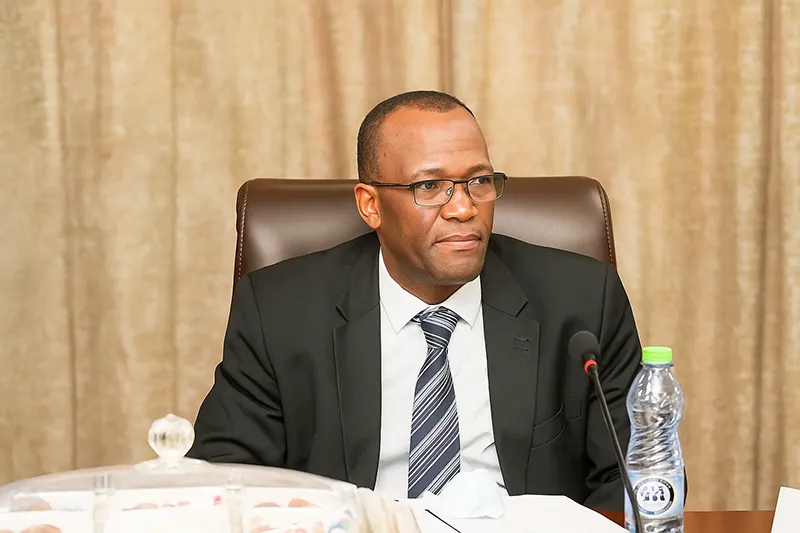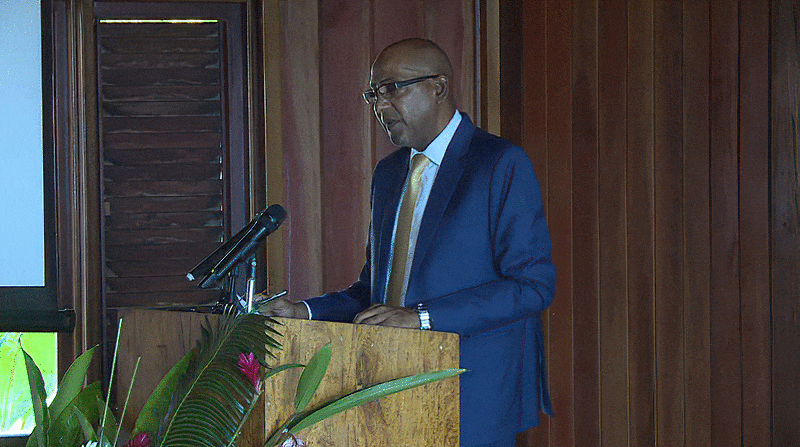
Dr. Thomson Fontaine is, by any international standard, an accomplished man. A former economist at the International Monetary Fund, a policy advisor to post-conflict nations, a man requested by Bangladesh, a population of 170 million, for fiscal advice, and an expert consulted on debt restructuring by the United Nations. Yet, in Dominica, particularly in his home village of Grand Fond, Fontaine’s credibility remains contested. Admired by some, doubted by others, his story is emblematic of a deeper dilemma in small island politics: how global brilliance can be met with local mistrust.
The paradox plays out in real time. Fontaine’s economic ideas are clear, comprehensive, and globally validated. He has crafted a ten-pillar plan for Dominica’s economic renewal, covering tax reform, livable wages, youth employment, healthcare transformation, and environmental stewardship. He has spoken fluently about restructuring Dominica’s debt obligations through climate-linked swaps and restoring agriculture as the country’s economic anchor. Yet even with this vision, there’s resistance at home. The question remains among many ordinary citizens, especially those in rural communities, whether Fontaine can deliver.
A Technocrat in a Political Arena
Fontaine’s political persona is that of a technocrat trying to navigate a deeply emotional political landscape. Unlike the current ruling party’s leadership, which thrives on charisma, patronage, and a direct emotional bond with supporters, Fontaine speaks the language of spreadsheets, budgets, and structural adjustment. His intelligence is unquestioned. What’s in question is his political touch.
At a recent event in the Bronx, Fontaine recounted the irony of being called upon to advise nations 2,000 times Dominica’s size while struggling to get a meeting with his own government. He detailed how he offered his expertise for free and was rebuffed. For his diaspora audience, it was a powerful moment, a symbol of wasted potential and political spite. But in Dominica, the reaction was more complex. Some applauded him; others shrugged. Many younger voters on the ground remain detached from the UWP brand he now leads, associating it with a past that feels distant and a leadership that, to them, feels absent.
Fontaine may be right about the need for governance reform, economic diversification, and wage justice. But Dominica’s political culture does not reward being right. It rewards being present.
The Diaspora Echo Chamber
Fontaine’s most ardent supporters often reside thousands of miles from the island. On social media platforms like Facebook, TikTok, and WhatsApp group chats among the diaspora, Fontaine is revered. He’s seen as a man of principle, a sharp contrast to what some describe as the “big mansion” politics of the current regime. His posts garner shares. His speeches circulate. But online enthusiasm doesn’t always translate into electoral ground game.
In fact, some commentators have warned that Fontaine’s support base, while loud, is disproportionately virtual. A local media platform, noted that his Bronx speech “resonated more with nostalgia than strategy” and questioned whether his message is reaching the fishermen in Portsmouth, the teachers in Grand Bay, or the NEP workers in La Plaine. A well-followed post on Twitter asked pointedly: “How many votes can you get from likes in New Jersey?” This is the crux of the Grand Fond paradox: the disconnect between international stature and village-level traction. The diaspora may applaud his insights on monetary policy. But if that message isn’t heard in Roseau Market or on the blocks of Fond Cole, it risks becoming background noise.
Presence Over Prestige
No one doubts that Dominica needs bold, well-informed policy. But many citizens, especially in economically vulnerable communities, want to see action, not just plans. They want to know: Will the feeder roads be fixed? Will the health centre be staffed? Will NEP workers get proper training and not just flowers to plant? And will someone come to their home, not just to speak at them, but to listen? Fontaine speaks often of transformation, but political transformation starts with ground truthing. That means regular visits to Kalinago Territory, Woodford Hill, Castle Bruce, not only for speeches, but for follow-ups, for practical assessments, and for co-designed solutions. People want to see that ideas aren’t just academic, they want to see pilot projects, agriculture collectives revived, trade workshops launched, and real community feedback loops in place.
To his credit, Fontaine has spoken about a restructured National Employment Programme, not as a stop-gap for joblessness, but as a training hub feeding into agro-processing, trades, and digital literacy. His emphasis on vocational skills over decorative programs has found resonance with educators. But again, these ideas live mostly in speeches. The next step, demonstrating feasibility, is where trust will be built.
Moving From Diagnosis to Delivery
Fontaine’s rhetoric frames the current administration as one that has “wasted two decades” and “governs with detachment.” He is not alone in this critique. Public frustration over stalled compensation in Wesley, under-resourced health facilities, and rising costs of living have created fertile ground for political alternatives. But alternatives require more than criticism. They require execution.
Fontaine has proposed a livable minimum wage of $12 per hour, an overhaul of the tax system to reduce duties on essentials, and a better redistributive model for CBI revenue. These aren’t radical ideas. They’re reasonable. Yet reason, in Dominica’s climate, must be matched with realism. How will businesses respond to wage increases? Can the treasury afford expanded public salaries without new taxes? These are the hard conversations voters want to hear, not after an election, but before one.
There is an appetite in Dominica for more than performance politics. People want sober plans, explained clearly. They want leaders who can both sit in the IMF and walk through the farms in Belles without being seen as out of touch. Fontaine has the resume for the first. What’s required now is the credibility for the second.
The Paradox Can Be Solved
The Grand Fond paradox is not fixed. It is fluid. Fontaine has not been rejected by Dominicans. But he hasn’t been embraced either, not yet. The space between admiration and trust is wide but bridgeable. It will require less time at podiums in the diaspora and more time in living rooms in Marigot. Less discussion of what’s broken, and more demonstration of how to fix it.
Dominicans don’t need another visionary. They need an implementer. Fontaine’s challenge is not to change what he knows, it is to prove that what he knows can be applied, locally, in a way that delivers.
If he does that, he won’t just be the economist from Grand Fond. He’ll be the statesman who returned home and turned his paradox into progress.
This article is copyright © 2025 DOM767








